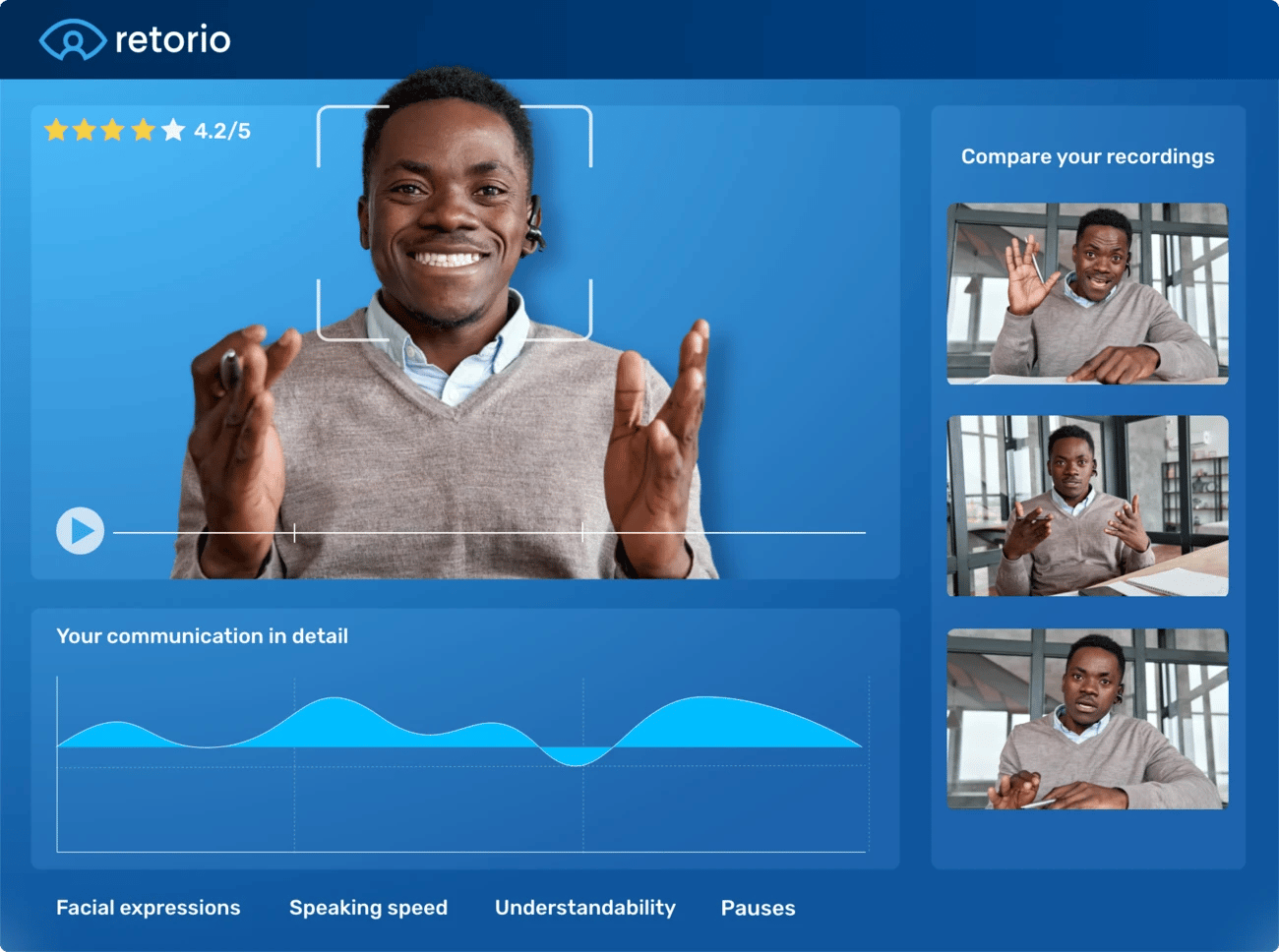You have been tasked with training and developing your company's employees, but you're feeling overwhelmed. You need to familiarize yourself with the latest learning platforms and practices quickly, create effective learning strategies within a limited budget, measure the results of your training programs, and ensure standardized training across multiple locations. You understand that providing effective soft skills training in this hybrid environment is particularly challenging.
The good news is, you don't have to go it alone. Behavioral Intelligence Tests (BITs) is a powerful tools that can help assess an individual's ability to think analytically and make decisions.
In this article, we'll discuss what behavioral intelligence tests are, how they work, and provide 7 steps for you to understand them best.
What's in this post?
- What is a behavioral intelligence test?
- Examples of behavioral intelligence tests
- Which companies are using behavioral intelligence tests?
- Faang behavioral interview questions (Tips for HR professionals)
- What is a behavioral intelligence test appraisal?
- How is behavioral intelligence test measured?
- Benefits of behavioral intelligence tests
What is a behavioral intelligence test?
Behavioral Intelligence Tests (BI Tests) are tools that organizations can use to evaluate the analytical thinking and decision making skills of their workforce. These tests assess an individuals abilities, including problem solving, critical thinking and decision making. Additionally they also measure an individuals personality traits, like assertiveness, adaptability and empathy. By gaining insight into employees current skill sets organizations can customize their training programs to achieve results.
What is behavioral intelligence?
Behavioral Intelligence (BI) is a term that encompasses an individuals capacity to engage in thinking make informed decisions and effectively solve problems. It draws upon factors including skills such, as critical thinking and problem solving aptitude as well as personality traits, like emotional intelligence, assertiveness and empathy.
You can also read more about what behavioral intelligence is by clicking here!
Examples of behavioral intelligence tests
It is crucial for organizations to recognize the significance of Behavioral Intelligence Tests when evaluating their employees cognitive capabilities and problem solving aptitude. These tests encompass a range of assessments that gauge an individuals thinking decision making abilities and problem solving skills. They also take into account important personality traits such, as intelligence, assertiveness and empathy.
Some examples of Behavioral Intelligence Tests include the Hogan Personality Inventory (HPI) the Cognitive Ability Test, the Watson Glaser Critical Thinking Appraisal and the Emotional Quotient (EQ) Test.
- The Hogan Personality Inventory (HPI) is a BI Test that assesses an individual’s personality traits such as how they interact with others, how well they handle stress and their overall approach to problem-solving. This instrument can also identify any negative aspects that might be present in an individual's personality. The HPI results can be used to create effective team-building strategies as well as customize employee training programs.
- The Cognitive Ability Test evaluates an individual’s cognitive abilities such as their logic, math skills, and ability to learn new information quickly. This helps organizations determine if a job applicant is suitable for a particular role or not by assessing their cognitive abilities. Additionally, businesses can use these results to develop employee development plans based on an individual's strengths and weaknesses in thinking processes and mental agility.
- The Watson-Glaser Critical Thinking Appraisal evaluates an individual's ability to think analytically and make decisions. It measures aspects like problem-solving strategies and decision-making techniques using multiple-choice questions. By analyzing the answers to these questions, employers can understand how well applicants perform under different circumstances and evaluate their potential for success in given roles.
- The Emotional Quotient (EQ) test measures an individual's emotional intelligence which includes self-awareness, self-management, social awareness, empathy, communication skills, etc. Organizations can use EQ assessments effectively to understand how employees interact with colleagues in various situations as well as identify areas where behavioral changes or coaching could help them become more successful at work.
Which companies are using behavioral intelligence tests?
- Google; Google uses tests that assess intelligence to identify candidates who have the capacity, for thinking, quick learning and problem solving. This helps them determine if a job applicant is suitable for a role by evaluating their abilities and problem solving skills.
- Apple; To gauge an individuals intelligence Apple makes use of intelligence tests that offer insights into self awareness, self management, social awareness, empathy and communication skills. This valuable data allows Apple to create customized employee development plans and design team building strategies that focus on each employees strengths and weaknesses in their thinking processes and mental agility.
- Microsoft; When evaluating hires Microsoft employs behavioral intelligence tests to find individuals with strong analytical thinking skills who can make swift decisions under pressure while also being effective communicators within teams. This process enables Microsoft to design learning programs tailored specifically to the needs of each candidate.
- IBM; For recruitment purposes IBM utilizes Behavioral Intelligence Tests (BI Tests) as they provide insights into an individuals decision making processes and thought patterns. This is especially valuable when assessing applicants for roles such as software engineers or product managers where critical thinking's crucial for success, on the job.
Faang behavioral interview questions (Tips for HR professionals)
Question 1: "What do you consider your biggest strengths and weaknesses when it comes to problem-solving?" (Tip for HR professionals: Listen for how the candidate approaches problems, their self-awareness of areas of improvement, and any strategies they have in place to address those weaknesses.)
Question 2: "Describe a time when you had to make an important decision within a limited time frame. How did you approach the situation?" (Tip for HR Professionals: Assess their ability to think quickly, and use logic, communication skills, and other critical thought processes under pressure.)
Question 3: Could you tell me about some challenges that you faced while working on a team project and how those issues get resolved? (Tip for HR Professionals: Evaluate their interpersonal communication skills as well as emotional intelligence by listening for empathy, active listening techniques, conflict resolution skills, etc)
Question 4: If presented with two options which would require different solutions but only one can be chosen, what would be your criteria in making this decision? (Tip For HR Professionals: Analyze if they are able to logically assess the pros/cons of each option and come up with feasible solutions while being mindful of the potential consequences).
What is a behavioral intelligence test appraisal?
An appraisal called intelligence testing is commonly used by organizations to evaluate an individuals abilities and emotional intelligence. These assessments are designed to gauge an individuals capacity, for thinking quick decision making under pressure and effective communication skills for teamwork.
Behavioral intelligence tests may involve problem solving activities that require candidates to weigh the pros and cons of solutions before making a decision. They can also encompass charged scenarios to assess empathy and self awareness.
These tests often form part of recruitment processes helping identify individuals with the skills for job roles. Additionally they provide insights, into employees strengths and weaknesses regarding their thinking processes, agility and communication abilities, which can aid in developing employee growth plans.
How is behavioral intelligence test measured?
Behavioral intelligence tests typically involve types of assessments including multiple choice questions, role playing scenarios and word puzzles. These assessments aim to evaluate an individuals abilities, emotional intelligence and problem solving skills. Multiple choice questions cover areas such, as logic, analysis, problem solving and communication skills.
Role playing scenarios candidates, with imaginary situations and ask them to respond accordingly. These scenarios often gauge empathy and self awareness by inquiring about how individuals would behave or interact in circumstances. Word puzzles may require candidates to solve riddles or analogies that test their thinking abilities.
Benefits of behavioral intelligence tests
| Assess Cognitive Abilities | Behavioral intelligence tests measure an individual's ability to think analytically and make decisions quickly under pressure. |
| Identify Job Candidates | These tests are often used in recruitment processes in order to identify individuals who possess the skills needed for a specific job role. |
| Develop Employee Plans | Behavioral intelligence tests can also help build employee development plans by providing insights into an employee’s strengths and weaknesses when it comes to thinking processes, mental agility, and communication skills. |
| Improve Team Dynamics | Behavioral intelligence tests can provide valuable information on how individuals communicate and interact with others, which can be beneficial when working as a team or group. |
In summary Behavioral Intelligence Tests are tools that organizations can use to evaluate their employees analytical thinking and decision making abilities. These tests assess skills, like problem solving, critical thinking and decision making well as personality traits such as emotional intelligence, assertiveness, flexibility and empathy.
By conducting a intelligence test with guidance from Talent Development experts companies can gain insights, into employees current skill sets. This information can then be used to customize training programs for results while also considering budget constraints. With this guide you now have all the information to understand the purpose of intelligence tests how they function and how to effectively incorporate them into your organization.

Retorio offers a learning and development solution that enables you to effectively train your employees through behavior intelligence. Our product utilizes intelligence assessments to evaluate abilities such, as problem solving, critical thinking and decision making along with personality traits like assertiveness, flexibility and empathy. By utilizing our solution you can gain insights on how to implement behavior intelligence, in employee development programs to achieve outcomes!
If you're looking to improve your team's skills and provide them with personalized coaching, consider trying out Retorio today!
Intelligence testing is a reliable way to measure an individual's cognitive abilities and limitations, using various assessment tools. By utilizing these tests, we can gain insight into the strengths of people's thought processes.
Key Takeaways
- Behavioral Intelligence Tests are powerful tools used to measure an individual's cognitive abilities, personality traits, and problem-solving skills.
- Behavioral Intelligence Tests can help employers predict job performance by examining applicants’ cognitive, problem-solving, and interpersonal skills.
- By understanding an employee’s current skill set through a comprehensive Behavioral Intelligence Test companies can tailor their training programs to ensure the most effective outcomes.
- Retorio offers a learning and development product that helps you understand how to use behavior intelligence effectively for employee development programs
FAQ
1. What is an example of behavioral intelligence?
Behavioral intelligence refers to the capacity to utilize abilities, interpersonal skills and problem solving techniques, in decision making processes. It encompasses the analysis of situations from perspectives. Making choices that align with personal objectives. Examples of intelligence include thinking, emotional intelligence, creativity, problem solving skills decision making abilities and effective communication. Employers often employ Behavioral Intelligence Tests to assess an individuals thinking and decision making aptitude.
These tests evaluate skills such as problem solving alongside personality traits like adaptability and empathy to gain insights into how employees approach tasks emotionally and behaviorally. By assessing an employees existing skill set through a BI Test with guidance from talent development experts companies can tailor their training programs for results while also keeping up with the latest e learning platforms and practices, within budget constraints.
2. What is behavioral intelligence?
Behavioral intelligence is the ability to use cognitive, problem-solving, and interpersonal skills to make decisions. It involves analyzing situations from multiple perspectives and making decisions that best align with an individual's goals.
3. What are some examples of behavioral skills?
Critical thinking, problem solving, emotional intelligence, creativity, flexibility, assertiveness, and empathy are some examples of behavioral skills in everyday life.
4. What are the 4 types of emotional intelligence?
Emotional intelligence plays a role, in intelligence and can be categorized into four distinct segments. These four types of intelligence include self awareness, self regulation, social skills and empathy.
Self awareness refers to the ability to recognize and comprehend our emotions and reactions. This skill enables individuals to gain insights into their responses in situations identifying areas, for personal growth or potential challenges.
Self regulation involves managing and controlling emotions allowing for decision making even under pressure. It entails recognizing difficult situations and developing strategies to handle them with ease when the need arises.
Social skills encompass a range of abilities that involve interacting with others including effective communication, collaboration, negotiation and conflict resolution.
Lastly empathy is the capacity to understand the emotions of others without having experienced similar circumstances.



